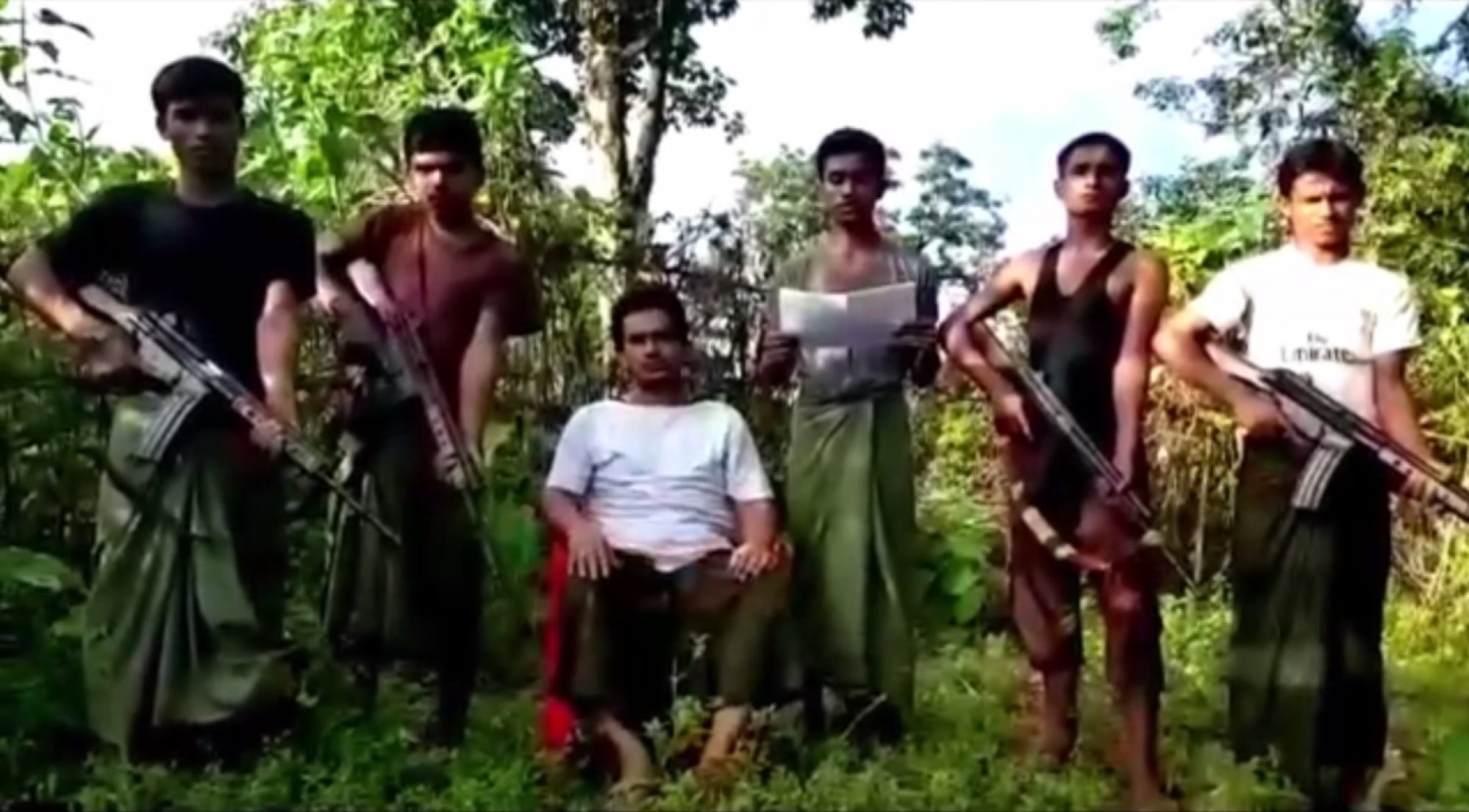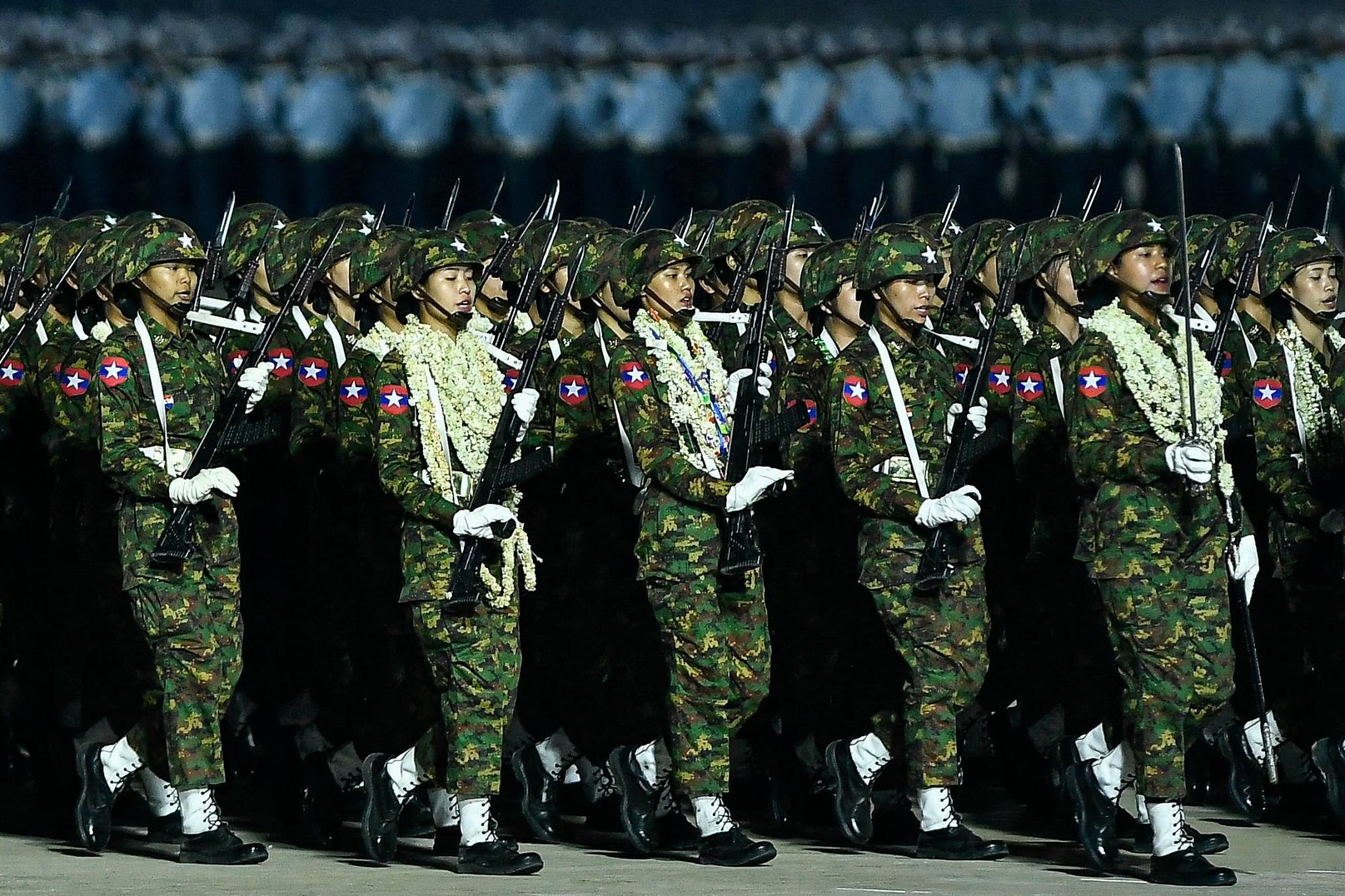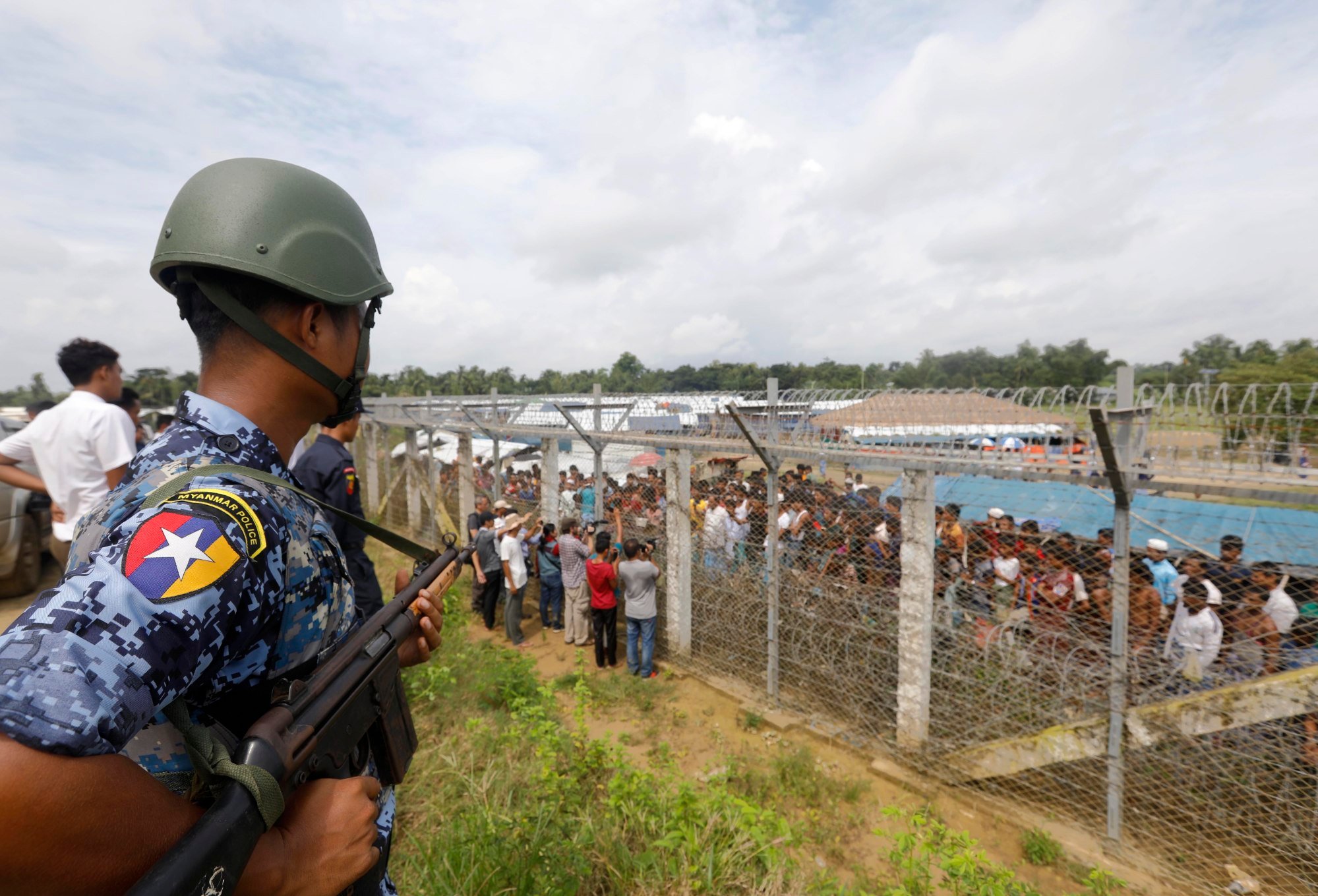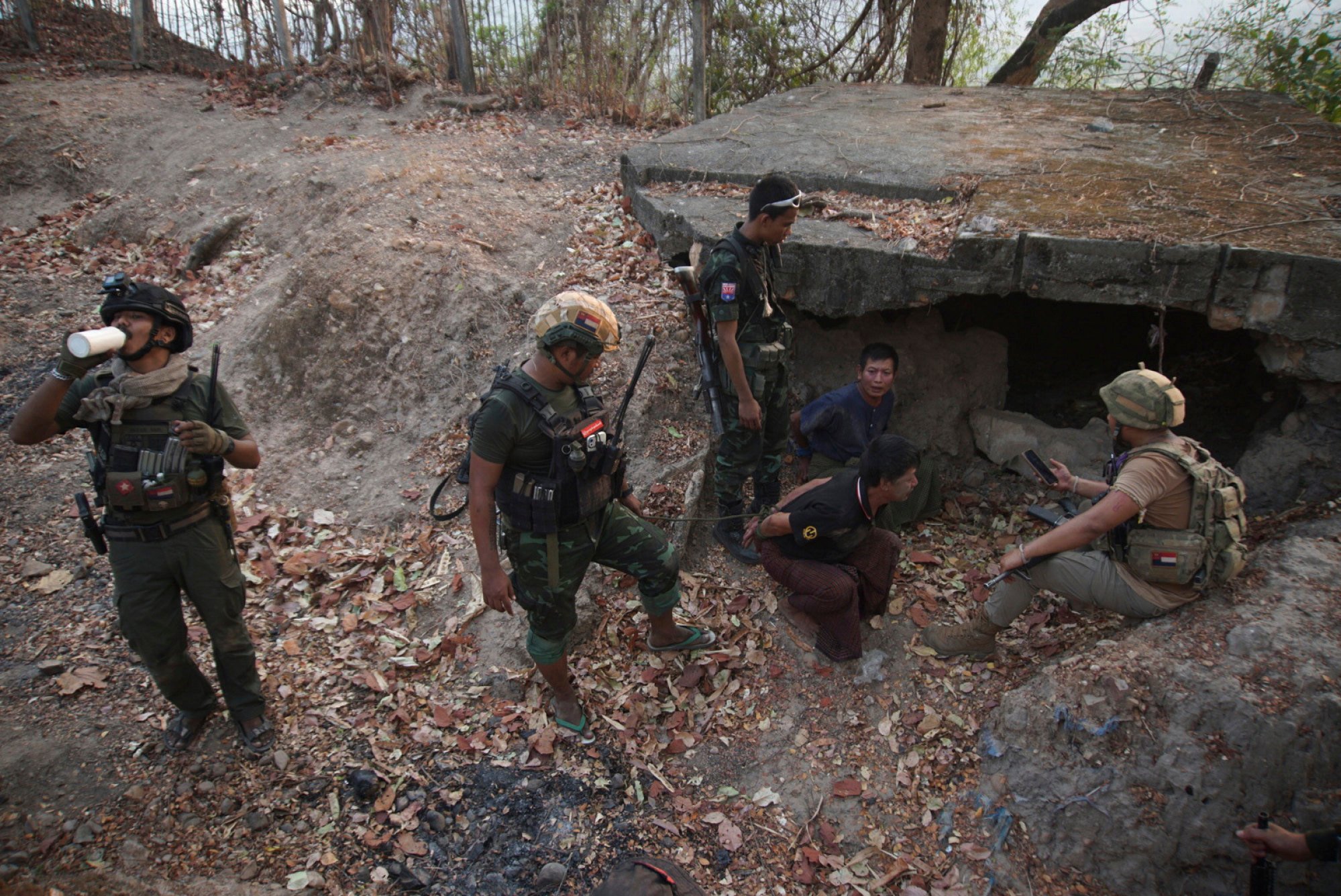The May 20 incident at Kutupalong Rohingya refugee camp in which more than 1,000 refugees, mostly women, were involved, was the first public protest in Bangladesh against the abduction and forced conscription of Rohingya youths.
In the past three months, several hundred Rohingya men and teenage boys have been abducted from the refugee camps in Bangladesh and sent across to Myanmar, according to rights groups and other Rohingya sources.
Community leaders and families of the forced conscripts told This Week in Asia that members of armed Rohingya insurgent groups operating in refugee camps in Bangladesh were sending the Rohingya youths across the border for conscription by Myanmar’s military.
Htway Lwin, a Cox’s Bazar-based Rohingya community leader and human rights defender, told This Week in Asia that Rohingya are being forcibly recruited by Myanmar’s military as well as its rival rebel group Arakan Army (AA).

Rohingya used as ‘human shields’
“The Myanmar military is using the Rohingya conscripts as human shields on the front lines in the war against the AA. As the military deploys Rohingya against the AA, the rebel group is also forcibly recruiting Rohingya individuals to use them as human shields,” said Lwin, who estimated 750 to 1,000 Rohingya men and boys have been supplied from Bangladesh refugee camps for conscription in Myanmar.
“This results in a conflict where Rohingya conscripts of the military junta are pitted against Rohingya conscripts of the AA.”
Refugees in Bangladesh said that Rohingya insurgent groups were “selling” the youths to Myanmar’s military.
The military junta is facing opposition to its rule from different ethnic rebel groups, including the AA. As it keeps losing ground, it has lost many troops to casualties and defection.

In a bid to replenish depleted ranks, the junta in February activated a decade-old conscription law.
In a statement on April 9, Human Rights Watch said that the Myanmar military had “abducted and forcibly recruited” more than 1,000 Rohingya men and boys from across Rakhine state.
‘No one wants this life as a soldier’
Mohammad Habib* told This Week in Asia that his 27-year-old brother, Mohammad Amin* was abducted by eight RSO insurgents on May 18.
“I identified two of the men who abducted my brother. They are well-known RSO leaders. They ignored our appeals to spare him and at gunpoint took him away,” Habib said on Friday.
“This morning, my brother told me over the phone that he was undergoing a 10-day training at a Myanmar military training centre … in Rakhine,” he added.
“There are at least 500 Rohingya at this centre, all divided into small groups of 10 or 15 conscripts. In my group, no one wants this life as a soldier in the Myanmar military. We all desperately want to run away from this place.”

The RSO leadership did not respond to a request for comment by This Week in Asia.
Noor Alom*, 19, who was conscripted by Myanmar’s military in April after being abducted from Bangladesh by unidentified insurgents, managed to run away from a training centre near the town of Maungdaw in Rakhine, seven days after he began training there.
“We were told that we would be sent to the front lines of the war against AA after the 10-day training was complete. We knew that the junta army was being defeated in many places and many on its side, including Rohingya soldiers, were being killed on the battlefield.
“I knew that with just 10 days training we, the Rohingya [conscripts] would not be fit to fight against the rebels, and our lives would be at risk,” Alom told This Week in Asia in a phone interview.
Nay San Lwin, co-founder of Free Rohingya Coalition, said the Myanmar Army did not regard the Rohingya as citizens yet wanted to recruit them in its fight against the insurgents.
“However, as the Myanmar Army is losing ground, the Rohingya have become its first target after enforcing the conscription law. While its troops, trained for years, are losing, it is using Rohingya youth on the front lines of the war after just 10 days or two weeks of training,” he said.
“This clearly shows its intention to use the Rohingya as human shields.”
Some refugees told This Week in Asia that their families paid a considerable amount of money for them to evade conscription in Myanmar to the insurgents.
“Some insurgents abducted me two weeks ago. My wife and her brothers managed to strike a deal with them. And, after my family and relatives paid [a bribe of] 130,000 takas [US$1,105] to them, they released me,” said a 32-year-old Rohingya refugee, who did not want to be identified
Pawns in the war
Many said that the conscription of Rohingya by both sides in the war had intensified the risks that the minority Muslim community faced in Myanmar.
“The Myanmar junta is using forced conscription as a strategy to harm the Rohingya people further by heightening the tensions between the Rohingya and Rakhine communities,” Htway Lwin said.
“As the junta loses ground to the Arakan Army and foresees losing control over Rakhine state, it aims to continue its genocidal campaign. Its plan involves eliminating the remaining Rohingya from Rakhine by forcibly conscripting Rohingya individuals and pitting them against the powerful Rakhine community.”

The Rohingya community in Myanmar has begun facing violent attacks from ethnic Rakhine-dominated AA in Myanmar.
Over the past fortnight, several Rohingya villages in the Buthidaung area in Rakhine were targeted in arson attacks, forcing tens of thousands of Rohingya to flee their homes. Rohingya has blamed the AA for the arson.
HRW’s Asia division researcher Shayna Bauchner said the generals were using the Rohingya as “pawns in their deadly battle” for control of Rakhine after keeping them “trapped in an apartheid system” for years.
“Decades of oppression and movement restrictions have left the Rohingya especially vulnerable to armed conflict and abuses like forced recruitment,” Bauchner told This Week in Asia.
“Foreign governments have not done enough to hold the generals accountable for their crimes, past and present. For the Rohingya to achieve justice and freedom, that needs to change.”
*names changed on request


